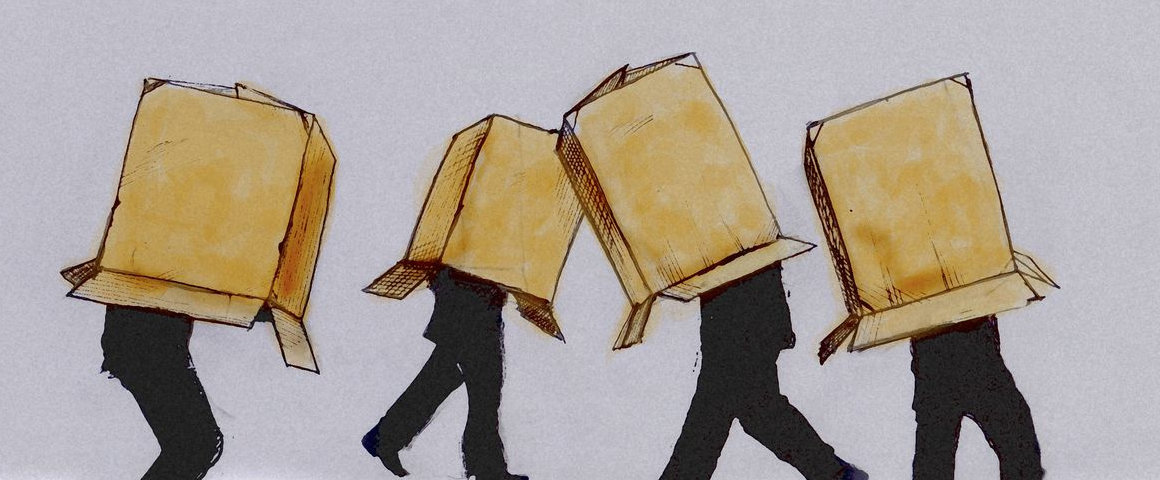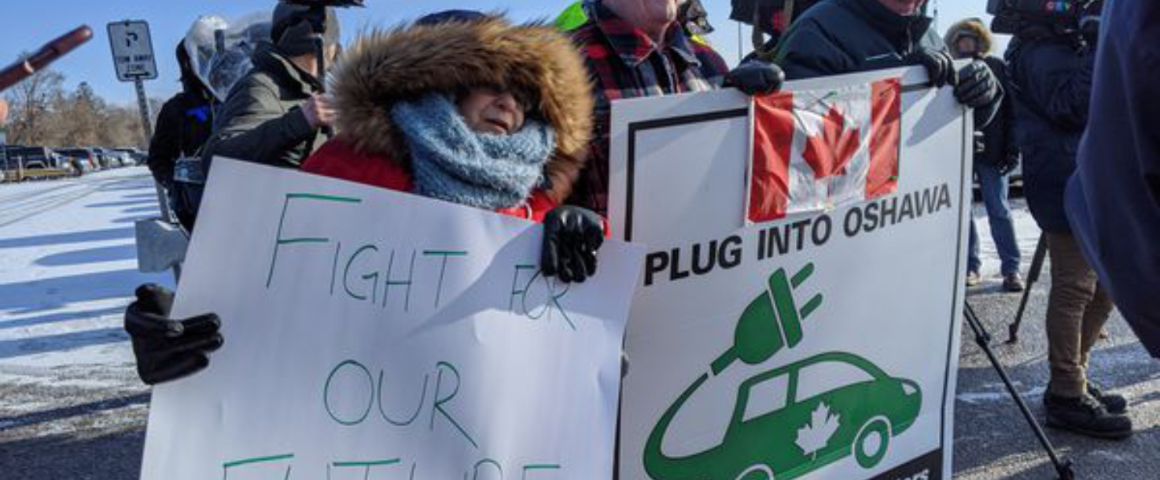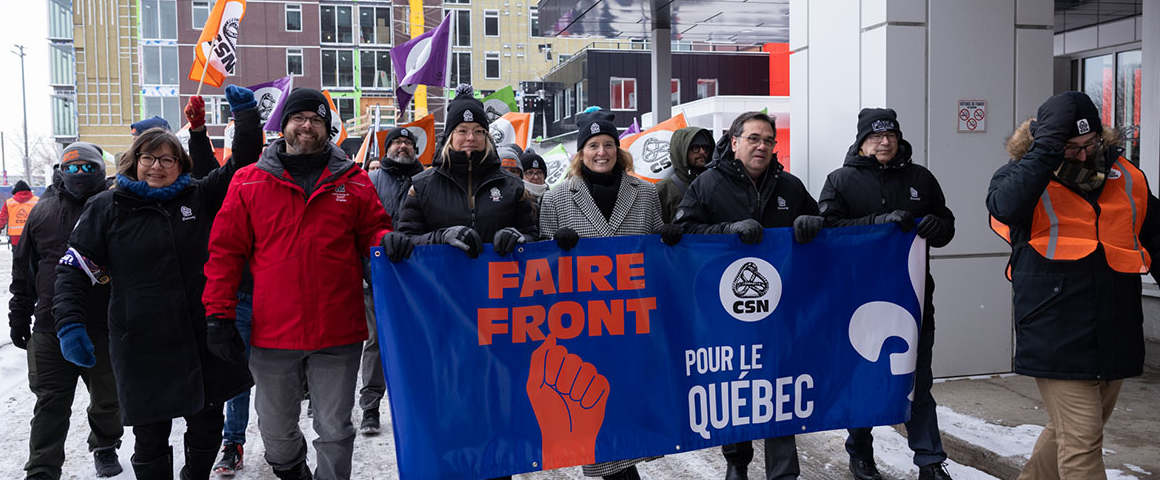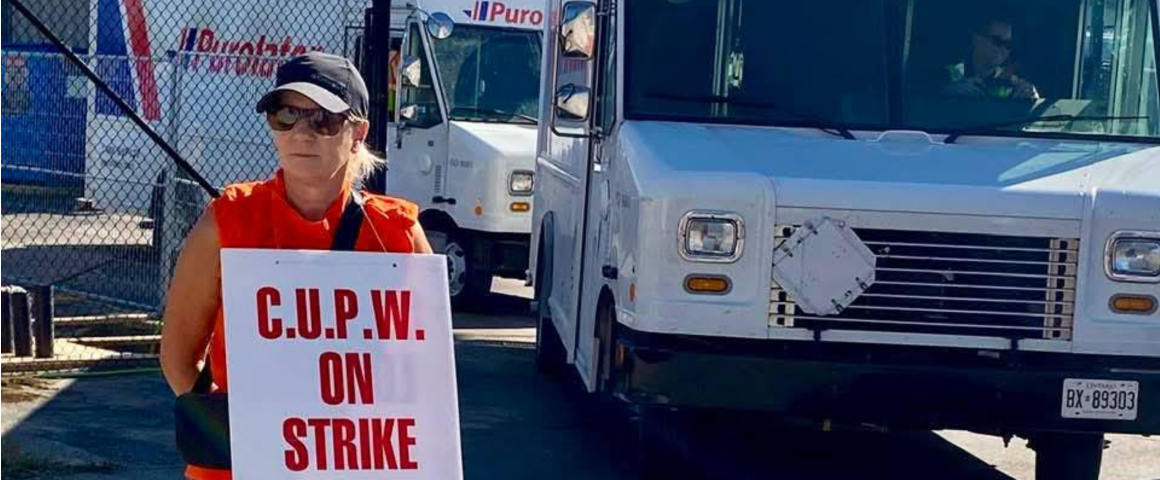During my second year of university, I was exposed for the first time to mass, extra-parliamentary political campaigning.
It was the fall of 1988, and the “Free Trade Election” was on. Of course, the main electoral contenders had lots to say about the free trade deal between Canada and the United States (FTA) – the Mulroney Conservatives championed it, the Turner Liberals hated it, and the Broadbent NDP opposed it – but the lasting images and memories for me were from a different source.
The FTA had been signed a year earlier, in October 1987, and mass opposition had already coalesced around a country-wide organizational structure called the Pro-Canada Network (PCN). The PCN united many progressive organizations and groups opposed to free trade – the Council of Canadians, the National Farmers Union, the National Anti-Poverty Organization, the National Action Committee on the Status of Women, the Assembly of First Nations, as well as churches, peace organizations and more. It had weaker engagement with progressive movements in Quebec – the name certainly didn’t help – but it was connected to the Coalition Québecoise d’opposition au libre-échange.
The financial and organizational backbone of the PCN was the trade union movement in English-speaking Canada, the Canadian Labour Congress and its main affiliates. With labour as the engine, the network was able to organize a number of Canada-wide assemblies where member groups, including provincial networks, drew up strategy plans for defeating the FTA. These plans included a sustained, multi-phase campaign beginning a year prior to the federal election and continuing through until after the vote.
This effort produced dozens upon dozens of protests in communities across the country, demonstrations at the Canada-US border, marches, lawn sign campaigns, and a massive public education effort. The mainstream newspapers could not help but publish stories and photos of protestors dogging Brian Mulroney throughout the election. The PCN campaign was a key factor in swinging public opinion from majority support for free trade in 1987 to majority opposed a year later.
Bob White’s speech to the 1988 convention of the United Fishermen and Allied Workers Union is considered one of the great speeches made in this country. The then-president of the Canadian Auto Workers (CAW) President Bob White described the FTA in clear class terms, with working class interests in stark opposition to those of corporations. White explicitly supported public intervention in the economy, albeit on a limited basis, and called on workers to defeat both free trade and the economic forces behind it.
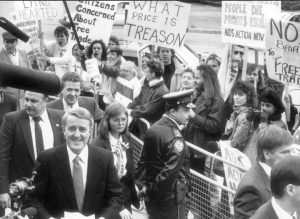
The PCN had its limitations. It was solidly a protest movement, united and clear in its opposition to free trade but less so in its projection of specific policy demands. Its nationalist rhetoric may have been a useful organizational vehicle in English-speaking Canada, but it weakened its ability to engage other nations in the country, particularly Québec, and project a clear class analysis to the working class. There were constant suspicions and “turf wars” between the member groups. There was no use of the political strike weapon. These challenges, and others, are still present today.
However, from the standpoint of the 2019 federal election campaign, the Pro-Canada Network campaign looks absolutely glorious.
The Canadian Labour Congress, which represents more than 3 million workers, seems to have confined itself to a website campaign about “fairness for everyone.” There is no mention anywhere of public intervention in the economy – the CLC’s “fairness” will apparently be achieved through public investment in private enterprise. There is not even a call for an expanded universal public pension plan, a demand the CLC (timidly) campaigned for in 2016.
Instead of rallies and protests, the CLC offers up a two-line “petition” on its website. Rather than demanding government intervention on behalf of working people, the CLC hosts “Election Debate Watch Parties.”
It’s the same liberalized class collaborationist message that the CLC put out during the NAFTA renegotiation. Then, instead of mobilizing working people against corporate trade deals, the CLC participated in the Liberal’s NAFTA Advisory Council and called for side deals without even questioning whether remaining in NAFTA was good for workers.
And we can’t look to the CAW for any history-making speeches about class struggle. That union’s successor, Unifor, appears to have completely adopted a “lesser evilism” tactic in this election, calling for a Liberal vote in order to block the Conservatives. Astonishingly, Unifor invited Justin Trudeau and Chrystia Freeland to address its convention in August. That these were the only politicians invited to speak is an indication of how deeply Liberal politics (including, in the case of Freeland, right-wing Liberal politics) have penetrated the largest private sector union in Canada.
The union’s campaign demands mirror those of the CLC and are similarly timid, focused around public investment in private corporations in order to provide jobs.
Here, again, nothing about public ownership and intervention in the economy, nothing about pensions, and nothing about mass mobilization. The only events Unifor seems interested in organizing are canvass blitzes for Liberal candidates.
It’s a sad situation. In an election where there is so much at stake – the threat of a new global recession, the growing danger of war and fascism, and a climate crisis that demands real action – we need the labour movement to step up with radical policies and organizational militancy. Yes, there are divisions within the trade union movement, but a mass campaign based on working class political demands would provide a class struggle basis for rebuilding unity.
Instead, we get the deafening silence of opportunism and business unionism.
This cannot continue – progressive trade unionists, in both the grassroots and in leading positions, will continue to organize and press for labour militancy based on class struggle positions. Those leaders who sit on their hands, and who try to sit on the hands of the entire working class, need be defeated.
Labour’s mass, extra-parliamentary political campaigning is too important to be left back in 1988.

